
Unisa's Library and Information Services made a significant impression at the Bi-Centenary Conference, titled "A dialogue on preserving knowledge heritage for future generations", at Thaba-Bosi Cultural Village. The event was organised by the National University of Lesotho Library and Information Services (NUL Library) and the Endangered Archives Programme Africa Hub in collaboration with the University of the Free State Library, the NUL Moshoeshoe I Institute of Peace and Leadership, and the British Library. This historical event marked 200 years of the Sesotho language's documented heritage, highlighting the essential role of preserving knowledge in shaping national history.
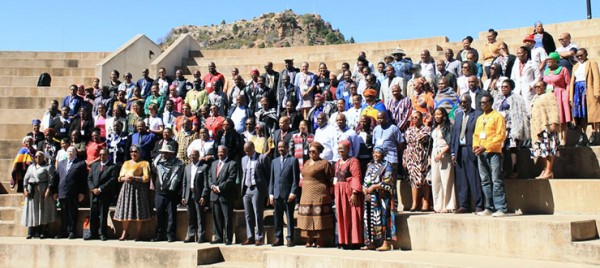
Lesotho Bicentenary Conference attendees
"Unisa Library has gone to even greater heights under the leadership of Professor Mpho Ngoepe," remarked Dr Buhle Mbambo-Thata, from NUL Library and former Executive Director of Unisa Library, during the conference, emphasising the progress and advancement that the library has achieved. Ngoepe, Executive Director of the Unisa Library, delivered compelling presentations on the digital exchange of archival collections, including those from Jesuit archives at Unisa, the University of Pretoria and Hamburg University. He emphasised the dual responsibilities of archivist archival bonds - preserving historical and born-digital records and making them accessible to a broader audience, using Unisa's Jesuit archival group as an example. The discussion spotlighted the collaborative efforts and challenges involved in digitising diverse records.
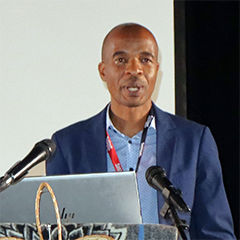
Prof Mpho Ngoepe
The conference brought together experts to share their insights on preserving knowledge and documentary heritage. Among the notable speakers was Dr Jerry Mofokeng wa Makhetha, a celebrated South African actor, director and author renowned for his significant contributions to the entertainment industry. Mofokeng wa Makhetha emphasised the importance of preserving cultural heritage through various forms of media, underscoring the vital role of the arts in maintaining historical continuity.
Other esteemed speakers included Prof Francis Petersen, Vice-Chancellor of the University of the Free State; The Honourable Stephen Smith, High Commissioner of the United Kingdom; and Prof Bonang Mohale, Chancellor of the University of the Free State. Additionally, Charlie Molepo, President of the Library and Information Association of South Africa (LIASA) and Deputy Director of Research and Scholarly Communications at the University of the Free State emphasised the importance of institutional collaboration to safeguard knowledge for future generations.
Adding to the discourse, Dr Janet Topp Fargion, head of Sound and Vision at the British Library, focused on ethnomusicology and audiovisual archiving. She advocated for a "postcustodial" approach, suggesting that archives should function as platforms for knowledge custodians, not merely as repositories. Fargion's insights on the importance of digital exchange for source communities and the need for visibility in digital spaces have been drawn from the British Library's global initiative to share digital collections.
Dr Daniel Rankadi Mosako, Senior Lecturer at Unisa, emphasised the importance of archives exhibitions as a 4IR knowledge dissemination tool for the current and future generations. Furthermore, Sally Kent, an Archivist and Curator at the Cambridge University Library, outlined how co-curation can improve the relevance and reach of archival materials by involving various stakeholders, ensuring that digital archives reflect diverse perspectives and needs.
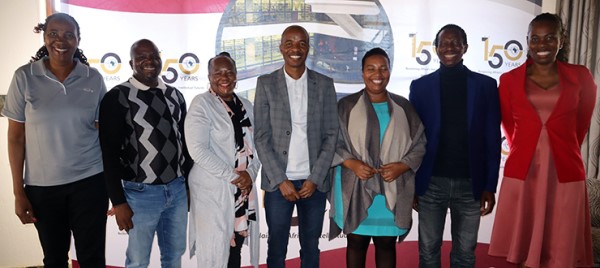
Unisa's LIS team
The conference also featured a presentation by Mosako and Sizakele Nkosi, who spoke about the importance of merging information resource content with educational theories at Comprehensive Open Distance eLearning institutions.
The exhibition highlighted the Unisa LIS' unwavering commitment to preserving national history and fostering meaningful discussions on the future of knowledge preservation in the digital age.
Through this conference, the Unisa Library team made a global impact on the complexities of knowledge preservation, committed to its mission of collecting, preserving, and sharing knowledge that shapes cultural identity and inspires future generations.
* By Itumeleng Mpete, Marketing Officer, Department of Library and Information Services
Publish date: 2024-09-12 00:00:00.0
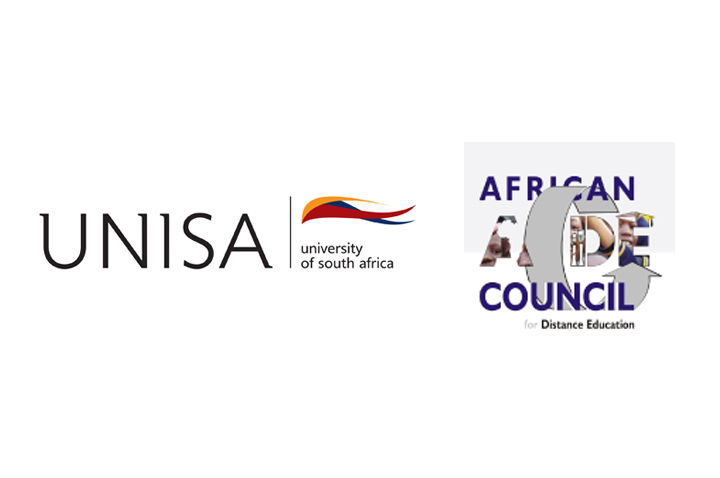 Unisa to host the illustrious ACDE's 20th Anniversary Seminar
Unisa to host the illustrious ACDE's 20th Anniversary Seminar
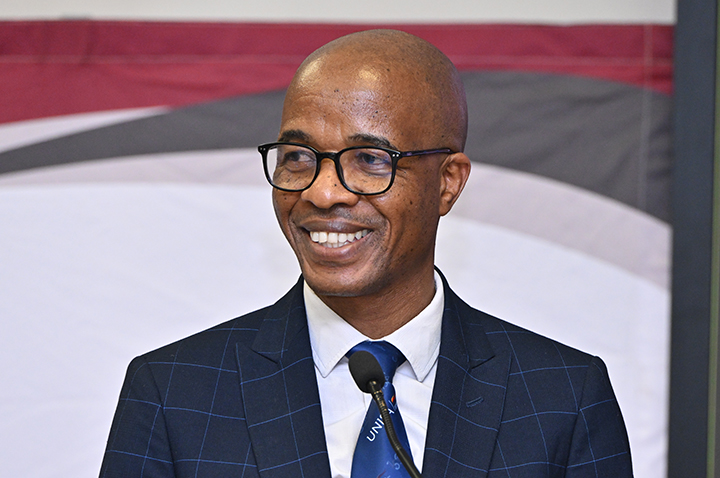 Unisa scholar honoured for reimagining Africa's archival future
Unisa scholar honoured for reimagining Africa's archival future
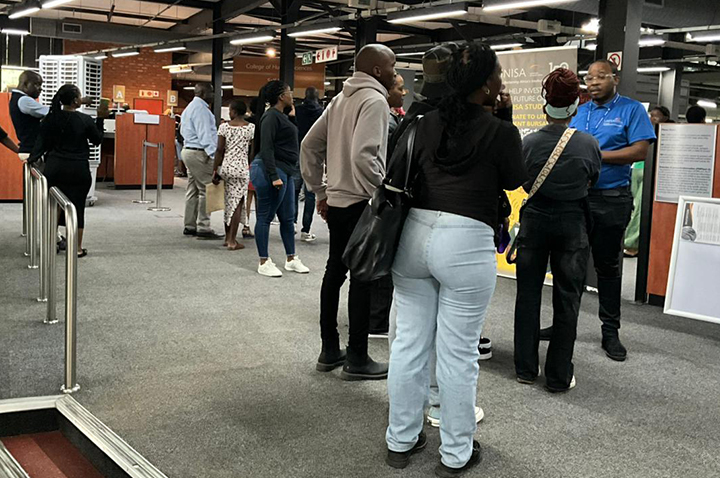 Unisa 2026 registration gains momentum at the Sunnyside Campus
Unisa 2026 registration gains momentum at the Sunnyside Campus
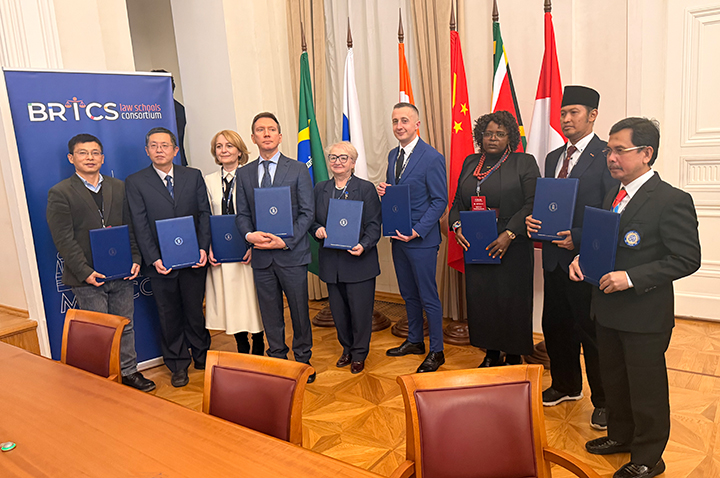 CLAW participates in the 2025 BRICS Law Consortium Forum
CLAW participates in the 2025 BRICS Law Consortium Forum
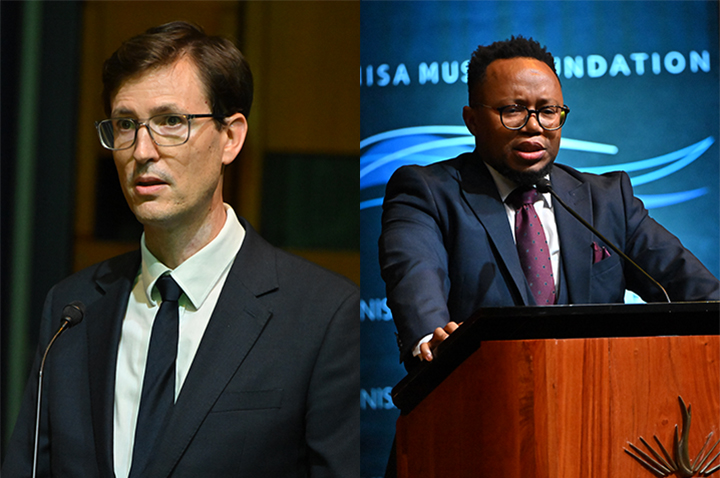 Foregrounding vocal artistry excellence at Unisa's premier music competition
Foregrounding vocal artistry excellence at Unisa's premier music competition